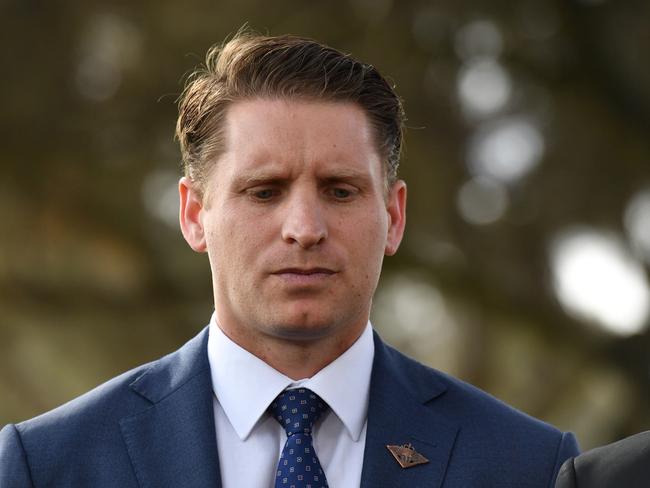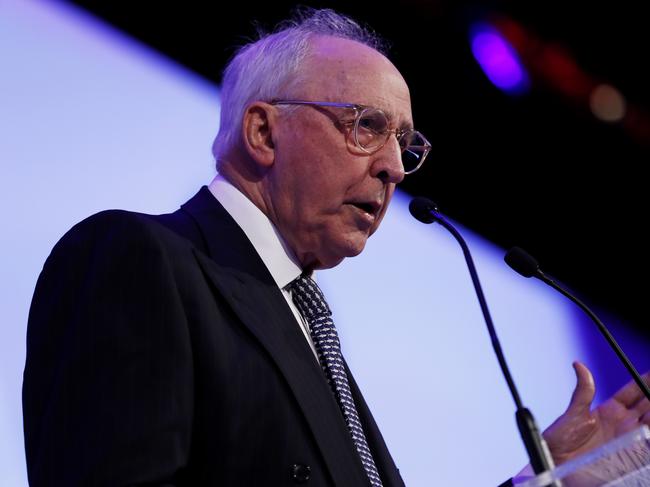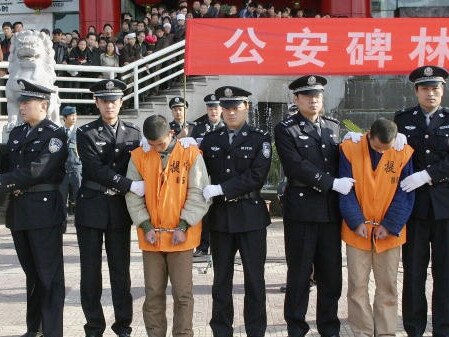China needs a little re-education on the principles of freedom
It has been the hope that as the Chinese masses were lifted out of poverty, their thoughts would turn to more democratic and liberal practices. The Chinese Communist Party is determined to ensure that won’t happen, writes Piers Akerman.
Opinion
Don't miss out on the headlines from Opinion. Followed categories will be added to My News.
- New Parklea prison boss: ‘It was worse than I thought’
- Tick tock: Study finds men also have a ‘biological clock’
Maybe something was lost in translation but whichever flack at the Chinese embassy demanded Senator James Patterson and MP Andrew Hastie “repent” for their well-founded criticism of China’s human rights record needs some serious re-education.
Not that anyone would suggest the functionary join the million-plus Uighurs in one of the Chinese camps established for that purpose, nor indeed should the individual be transferred to Xinjiang province, the whole of which is now under intense surveillance.
The Chinese government dominated by President Xi is unable to separate criticism from accurate observation.
Not only does the Chinese Communist Party wish Western media would not report on its brutal treatment of the Uighur minority or the Falun Gong, it is hoping that journalists will self-censor their reports and play up the economic transformation of the nation.

MORE FROM PIERS AKERMAN
Fire app as brilliant as Greens scare campaign is revolting
We could power our country on a bonfire of vanities
It has been the hope (perhaps misguided) that as the Chinese masses were lifted out of poverty, their thoughts would turn to more democratic and liberal practices but the Chinese Communist Party is determined to ensure that won’t happen.
We have, by any measure, a free democratic and pluralistic society.
China has never enjoyed what we take for granted. It’s not in its tradition, it’s not in its DNA. When Hong Kong was returned to China after 155 years of British rule, the locals had grown accustomed to freedoms and a rule of law which their cousins on the mainland had not only never experienced but which the leaders of the Communist Party actively fear.
Who knows how the masses would vote if they were given the vote?
The West has generally approached Communist states pragmatically.
As former prime minister Paul Keating told the impressive Strategic Forum organised by The Australian newspaper last week: “God help us if we are limited or slated to deal only with democracies.”
“That policy would, without doubt, have lost us the Second World War for Europe had no chance of being liberated singularly from the west. Without Stalin, the Soviet Union, the Second World War would have gone to Hitler.
“And let’s not get too starry-eyed about so-called democracies. Germany was a constitutional democracy coming up to 1914, but those instincts didn’t save the rest of us from the nationalist instincts of the Prussian Junkers.”

Mr Keating has mounted a “straw man” argument. The West had to sup with the Devil to save most of Europe in World War II and Russia exacted a terrible price in the aftermath. Just ask the Baltic States and Poland how they fared under Soviet oppression. The closest alliance, if it could be called that, that China has with the West has been against the rise of Islamist fanatics which has led to the persecution and incarceration of the Muslim Uighur minority.
Whether they are all terrorists is doubtful but for one pragmatic Australian business leader Hamish Douglass, the founder and chairman of Magellan Financial, it’s a matter of context.
“Look, my personal perspective on this is when countries go through development phases, they do things in their development phase, and I think if you look at the US and Australia, there are many things that have gone on in our history and still going on today in relation to what we may be doing in Australia, and certainly in our history that looked in future and time, we may not look back on very proudly,” he told the Strategic Forum.

“In terms of the human rights efforts there, I think we need to go back at what their policy is trying to do here, and their policy, it would appear to us from studying it — so, yes, we do look at this — is really around a view on terrorism in the far west of China.
“What they’re trying to do, it would appear — and I don’t agree with it all but you have to understand the policy — it’s about stability in the country, it’s about re-education and it’s about trying to take out an influence. The way they’re going about it — I think many of us in the west don’t necessarily agree with, but … I think you just need to understand the context … but I do find some of the press commentary of it is relatively unbalanced and not understanding what — the intent of what they’re trying to do — we have a lot of anti-terrorism and immigration and other policies that are pretty tough in this country, but we understand what the government’s trying to do. People agree or disagree with the method.”
So perhaps re-education camps are sort of all right or not in developing countries but like repentance, it’s the context.
